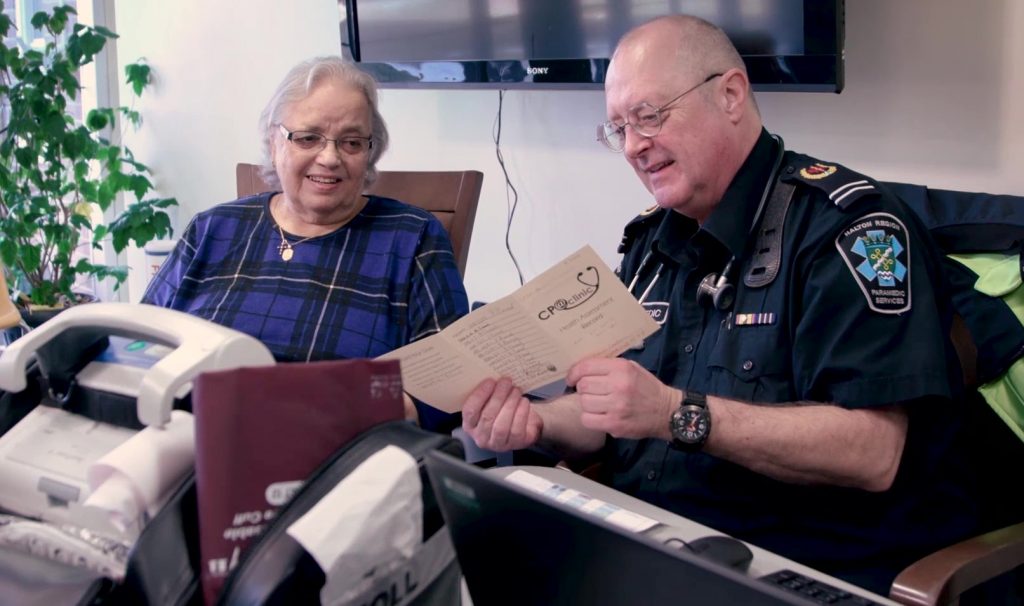Clinics by paramedics improve care, cut 911 calls

Specially trained paramedics hold drop-in sessions where seniors live as part of the Community Paramedicine at Clinic (CP@clinic) program. It puts community health programming into subsidized housing across Ontario.
October 7, 2020
In Canada, many seniors live in subsidized or social housing. It’s been proven that health-care conditions that come with age, coupled with poverty, often lead to more trips to the emergency room, and more calls to 911.
The Community Paramedicine at Clinic (CP@clinic) program aims to address some of these challenges, by putting community health programming into subsidized housing across Ontario –having specially trained paramedics hold drop-in sessions where seniors live.
The CP@clinic is an innovative chronic disease prevention and health promotion program developed by a team of researchers at McMaster University’s Department of Family Medicine.
The paramedics assess health risks and provide tailored education, connecting older adults with their primary care team and community resources to improve their overall health and quality of life.
“Community paramedics were seen as approachable and accessible health care providers who could bridge the gap between emergency departments and family practice,” said Gina Agarwal, family physician, professor, and CP@clinic principal investigator.
CP@clinic demonstrates what can be achieved when community partners and researchers work together to address a need in the community.
After an initial pilot study in Hamilton, and a successful multi-site randomized controlled trial in Ontario, CP@clinic has expanded to operate in 35 per cent of paramedic services in Ontario. In 2019, the program received funding from Health Canada to scale up across Canada.
The results of two randomized controlled trials found CP@clinic to be effective in reducing 911 calls by as much as 20 per cent.
The program has also shown to improve quality of life, reduce chronic disease risk and improve connections to primary care.
“My hope for CP@clinic is that it will continue to fill the gap for low-income seniors living in social housing so they can lead more empowered and fulfilling lives,” said Agarwal. “This will also reduce the burden on the health care system in Canada.”
CP@clinic is one of several research initiatives within the newly launched David Braley Primary Care Research Collaborative.


